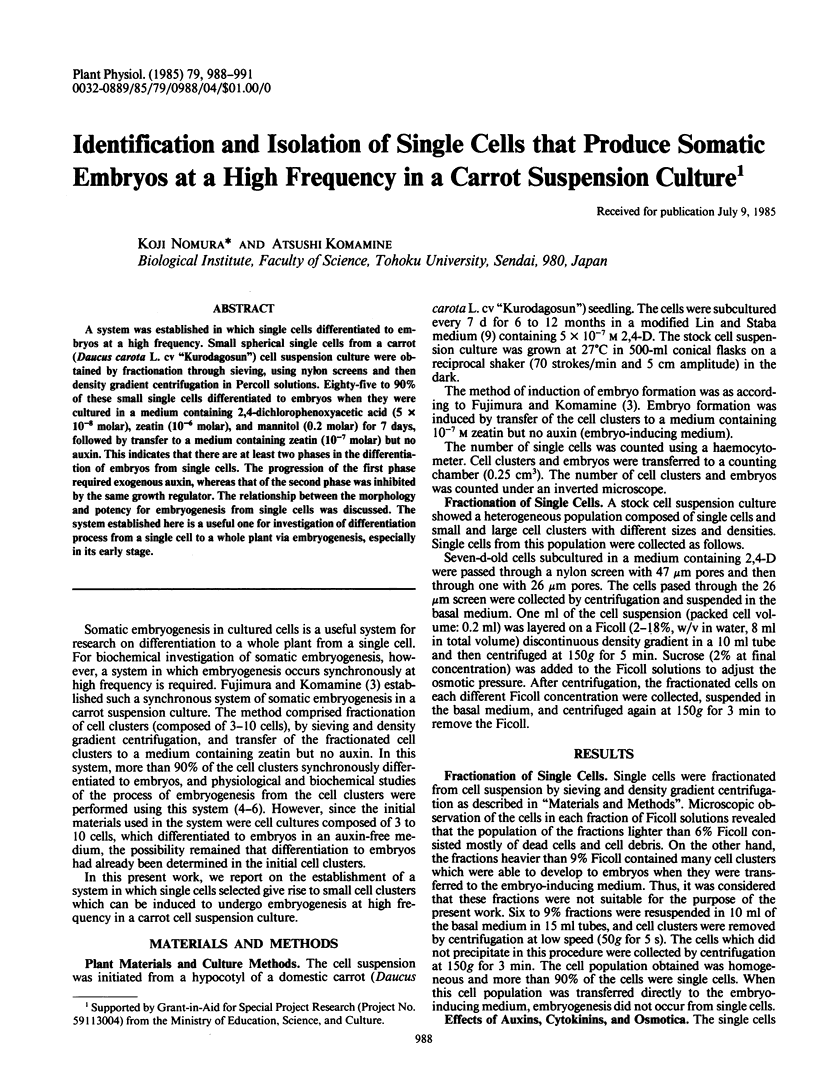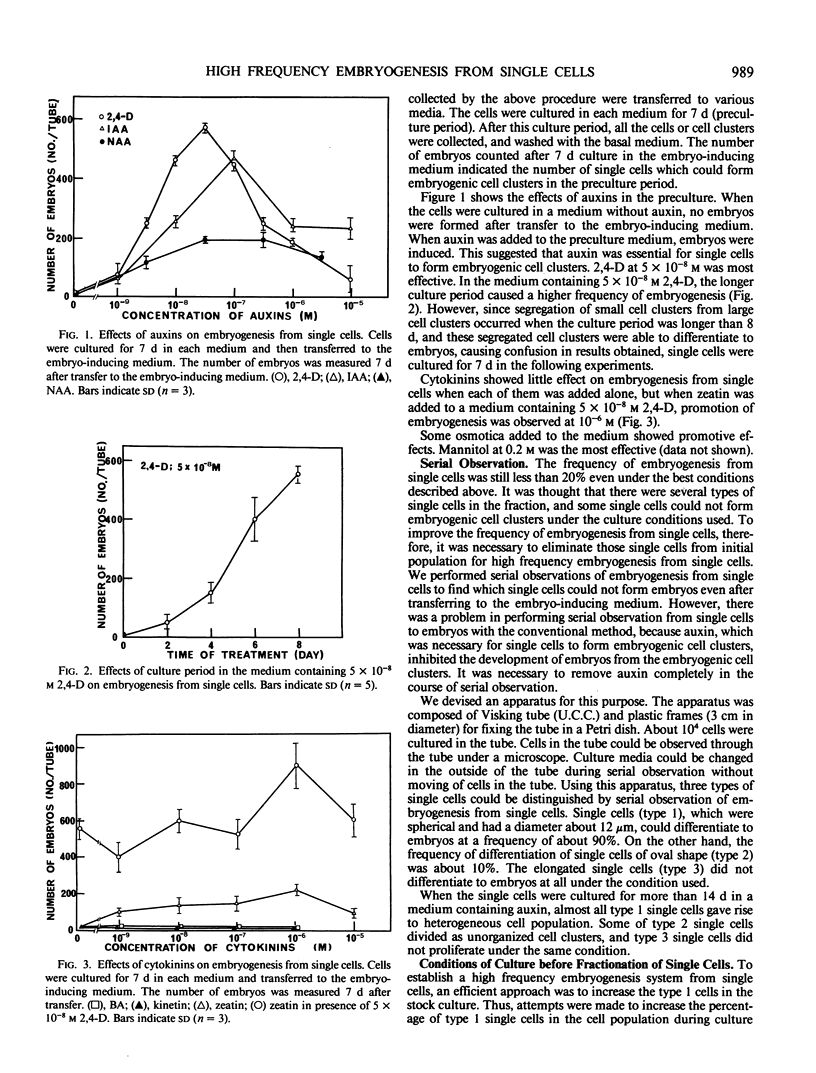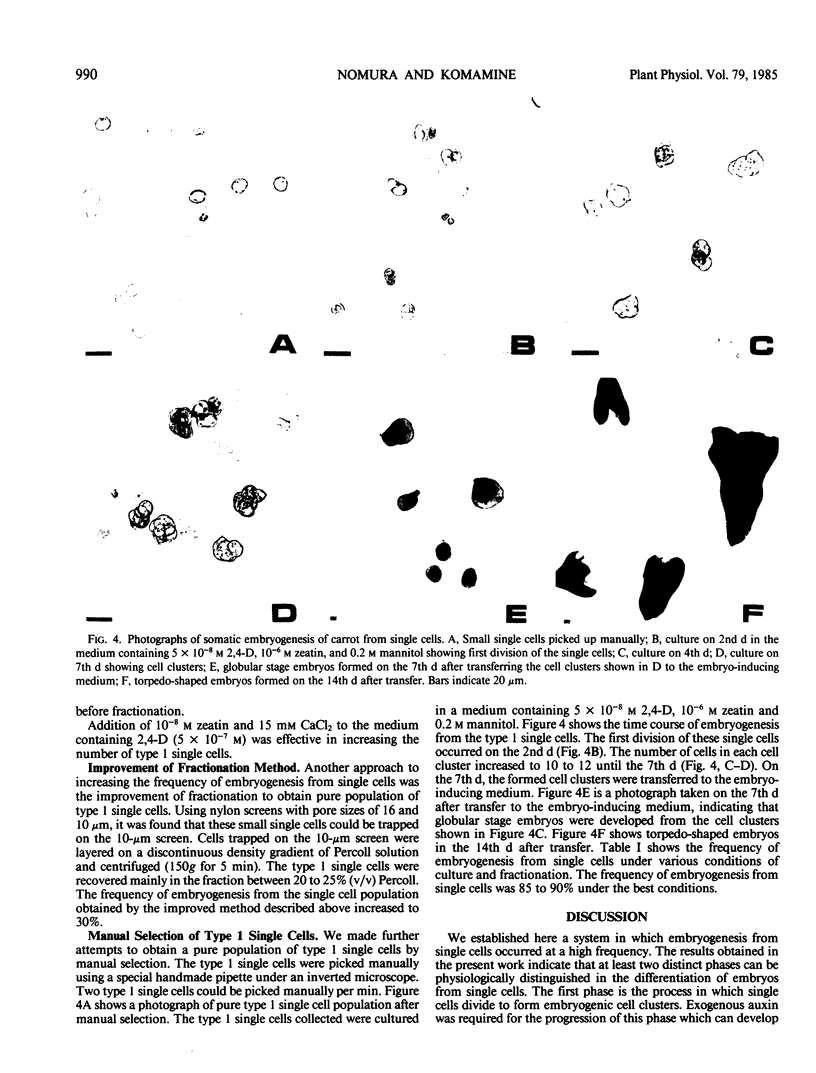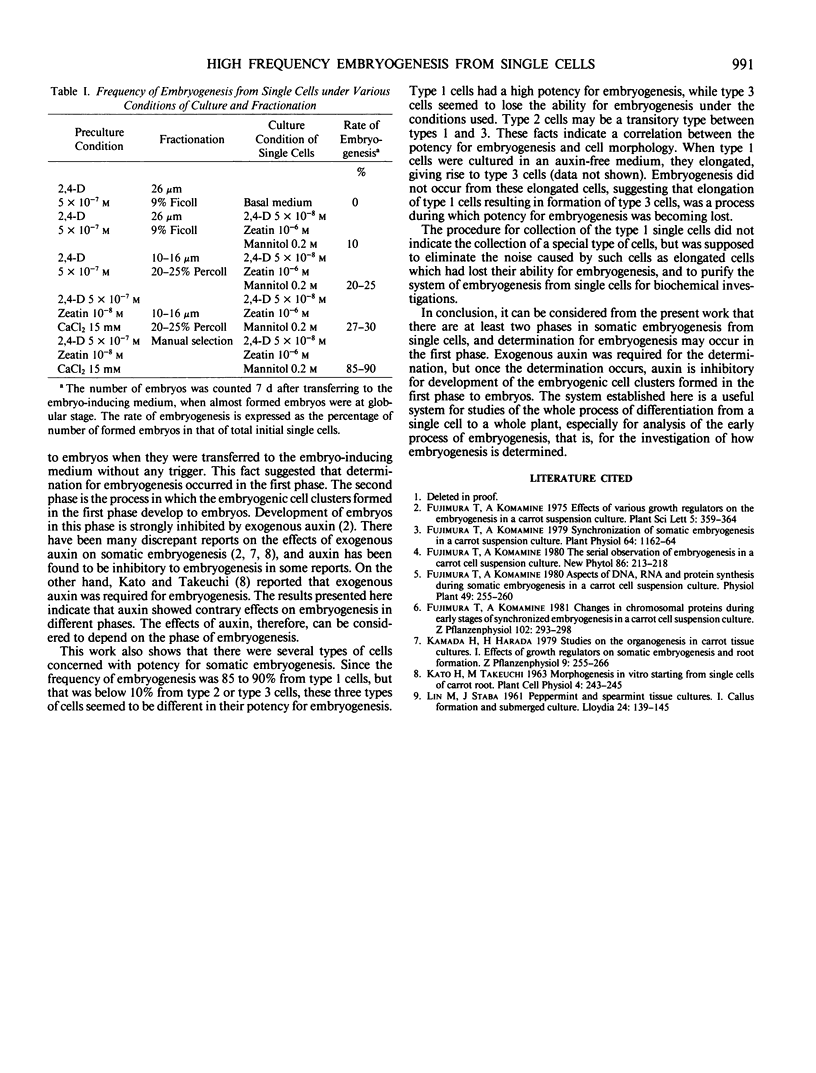Abstract
A system was established in which single cells differentiated to embryos at a high frequency. Small spherical single cells from a carrot (Daucus carota L. cv “Kurodagosun”) cell suspension culture were obtained by fractionation through sieving, using nylon screens and then density gradient centrifugation in Percoll solutions. Eighty-five to 90% of these small single cells differentiated to embryos when they were cultured in a medium containing 2,4-dichlorophenoxyacetic acid (5 × 10−8 molar), zeatin (10−6 molar), and mannitol (0.2 molar) for 7 days, followed by transfer to a medium containing zeatin (10−7 molar) but no auxin. This indicates that there are at least two phases in the differentiation of embryos from single cells. The progression of the first phase required exogenous auxin, whereas that of the second phase was inhibited by the same growth regulator. The relationship between the morphology and potency for embryogenesis from single cells was discussed. The system established here is a useful one for investigation of differentiation process from a single cell to a whole plant via embryogenesis, especially in its early stage.
Full text
PDF






